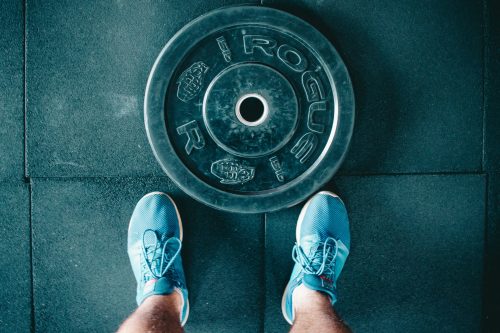When it comes to fitness, there’s a lot of misinformation floating around. As we transition into fall and prepare for the new year, it’s crucial to address common fitness myths that may be holding you back from achieving your health goals. In this article, we’re going to bust five of the most common fitness myths to help you get on the right track as the seasons change and we look ahead to new resolutions.
Fitness Myths, the first: All Fats and Carbs Are Bad
One of the most persistent fitness myths is the belief that fats and carbs are the enemy of a healthy diet. However, not all fats and carbs are bad. In fact, complex carbohydrates and healthy fats are essential for maintaining balanced energy levels and supporting vital body functions like hormone production and brain function. Cutting out all fats and carbs can lead to nutritional deficiencies and may even cause your body to break down muscle tissue for energy. As we embrace the cooler months and start craving comfort foods, it’s important to include nutrient-dense options like whole grains, nuts, and avocados rather than overly processed alternatives. Eating in moderation and being mindful of your portions will allow you to sustain energy without feeling deprived. Instead of eliminating entire food groups, aim for a balanced approach where healthy fats and complex carbs are part of your daily intake. The myth that all carbs and fats are bad simply isn’t supported by science.
Fitness Myths, the second: Lifting Weights Will Make You Bulky
This fitness myth has discouraged countless people, particularly women, from picking up weights out of fear they’ll bulk up like bodybuilders. In reality, building muscle through weight training helps tone and define your body, making you stronger and leaner—not bulkier. The notion that lifting weights will lead to an oversized physique is largely based on misconceptions. Women, in particular, do not have the same testosterone levels as men, which are necessary to build large muscles. Strength training, when combined with cardio, helps improve overall body composition by reducing fat and increasing lean muscle mass. Additionally, lifting weights has significant benefits for long-term health, including stronger bones, reduced risk of injury, and improved metabolism. As we approach the new year, incorporating weights into your routine can give you the foundation for sustainable fitness success. Lifting weights two to three times a week can lead to a stronger, fitter version of yourself, with no need to fear becoming bulky.
Fitness Myths, the third: Exercise Is the Most Important Factor in Losing Weight
Another common fitness myth is that exercise alone is the key to weight loss. While it’s true that physical activity plays a role, it accounts for only 20% of the weight-loss equation. The remaining 80% comes down to your diet. No matter how hard you train in the gym, if you’re not fueling your body with the right foods, you won’t see the results you’re hoping for. What you eat matters significantly more when it comes to shedding pounds. Nutrient-dense foods like fruits, vegetables, lean proteins, and whole grains provide your body with essential nutrients that promote fat loss and muscle maintenance. Focusing on what you put on your plate is crucial. As the holidays approach, this myth becomes particularly relevant—it’s easy to overindulge while thinking that an extra workout will balance things out. Instead, focus on both aspects: staying active while making mindful eating choices. By paying attention to portion control and the quality of your food, you’ll achieve better results, with or without extensive workout sessions.
Fitness Myth, the forth: If You’re Hungry, You’re Losing Weight
Many believe that hunger is a sign that you’re losing weight effectively, but this is another fitness myth that can lead to unhealthy behaviors. While creating a calorie deficit is essential for weight loss, constantly feeling hungry is not sustainable and can lead to negative consequences like slowed metabolism or even malnutrition. Your body needs fuel to function properly, and when you deprive it of the nutrients it needs, it may enter “starvation mode,” slowing down your metabolism and causing your body to cling to fat reserves. Instead of embracing hunger as a sign of success, focus on nourishing your body with balanced meals that include fiber, protein, and healthy fats. Intermittent fasting or mindful eating can help you manage portions without the discomfort of hunger. As fall progresses and the new year approaches, it’s important to avoid falling into this trap. Balanced meals that keep you full will lead to better long-term success and make it easier to stick to your goals without feeling deprived. (Carbohydrate intake during exercise and performance)
Fitness Myth, the fifth: Supplements Can’t Support Your Health and Fitness Goals
The idea that supplements are unnecessary or ineffective is a widespread fitness myth that needs to be debunked. While it’s true that whole foods should be your primary source of nutrients, the modern diet often falls short of delivering all the vitamins and minerals your body needs—especially if you’re pursuing specific fitness goals. Whether you’re aiming for muscle gain, fat loss, or simply better overall health, supplements can play a vital role in bridging nutritional gaps. Multivitamins, protein powders, and supplements with ingredients like omega-3s, vitamin D, or magnesium can provide the necessary support for your fitness journey. But remember you are adding Energy, not intelligence and sometimes it needs brains instead of muscle.
During busy times, like the holiday season or the start of the new year, when maintaining a perfect diet can be difficult, supplements offer an easy way to ensure your body gets the fuel it needs.
Looking Forward to a Healthier Fall and Beyond
As the seasons change and the end of the year approaches, it’s the perfect time to reevaluate your fitness goals and bust the fitness myths that may be holding you back. With a balanced diet, regular exercise, and proper supplementation, you can set yourself up for success. But please keep in mind, that supplements can only work their magic in a balanced system and nature’s way to achieve this balance has been adding intelligent molecules into the system.
Remember, your fitness journey is personal, and debunking these myths will help you make informed choices that lead to lasting results. As you work toward your health goals this fall and into the new year, let these insights guide you to a stronger, healthier you.
With love and positivity,
Jennifer 🙏🏻💛









